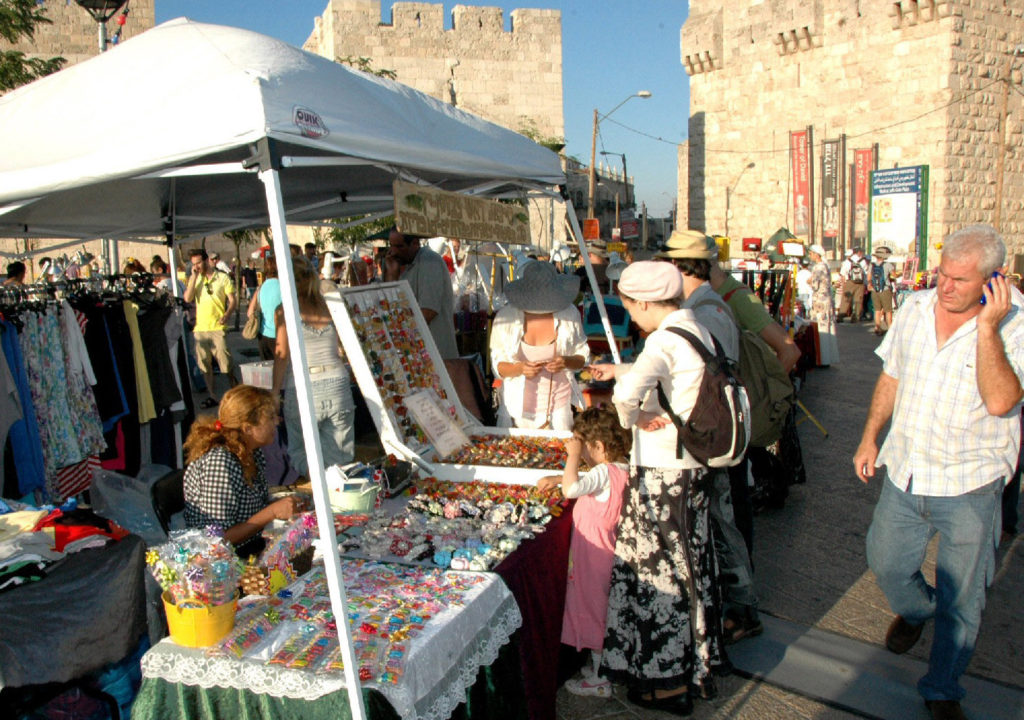Australia/Israel Review
The Last Word: Seeing is Disbelieving
Feb 28, 2012 | Jeremy Jones

Jeremy Jones
A few weeks ago I was sitting in a Muslim-owned café in an east Jerusalem suburb, discussing the complexities of Middle Eastern affairs with a Greek Orthodox Palestinian nationalist.
Hours earlier, I had met with a young, American-born Jewish woman, a high achiever academically who seemed to have the world at her feet in the USA or Europe. She spoke of her decision, as an independent young adult, to emigrate to Israel, where she is currently going through basic military training.
Between these encounters, I had spoken with academics involved in projects such as the documentation of “Tolerance and Intolerance in the Middle East”, a politician with a strong Jewish ethnic identity yet almost militantly secular and a number of individuals involved in advocacy for social change in many areas of Israeli society.
There was nothing abnormal or auspicious in any of this – Israel is complex and Israelis perhaps even more so.
The human fabric of Israeli society which I encountered in a few days included Christians, Muslims, Jews, Druze and Bahai – all practising their religion unimpeded. It included people born in many parts of Israel and others from Brazil, the Caucasus, Belarus, the USA, Australia, Poland, Ethiopia, Morocco, India and elsewhere – who had come to live in Israel for a variety of reasons but none of whom doubted they were “at home”.
Although I visit Israel often, this was the first time I had been to Jerusalem since the opening of the light rail, which wends its way from Mt. Herzl along 14 km. of track, past the heart of modern Jerusalem, through east Jerusalem to Heil Ha-Avir (Air Force St.) in the north of the city.
On the tram, I observed a cross-section of Israeli society, including Arabs, Jews and Christians, religious and secular, young and old, sharing common space and doing such mundane things as helping each other with shopping bags, working the ticket-stamp machine and in unison imploring drivers to leave the doors open a little longer so that the person running towards it had time to board.
The ride not only helps assist a better understanding of the geography and demography of the city, but also of the normality of interpersonal relations – defying both stereotypes and the dreams of those who want sections of humanity to be divided and hostile towards each other.
When visiting Israel, it is easy to only focus on one community, one religion or one perspective, which is why the participants in AIJAC’s Rambam study tours are fortunate enough to enjoy a range of experiences.
It was instructive to meet Christian visitors to Israel who saw many significant Christian places, a mosque and perhaps one or two specifically Jewish sites, but never met a Jewish Israeli.
They enjoy their visits and learn a great deal, but their understanding of Israelis and Israel is as limited as that of the political activists who come simply to reinforce pre-existing prejudices by meeting with think-a-likes or seeking out the most extreme representations of views they oppose.
While a guest of the Palestinian Authority for part of my most recent visit, I was far less concerned by the overtly anti-Jewish comments (about “Chosen People” and alleged uniform Jewish views and behaviour) than the fact that the speakers seemed confident that what they said would be either accepted as fact or at least unchallenged – assumptions based on many briefings to visitors from the West.
While doubtless there are individual Israelis who conform to whatever stereotype is held of them, there is no reason to believe that any generalisation does not have more exceptions to it than people who it may apply to.
Indeed, the more one takes the time to speak to Israelis, the greater the disconnect appears to be between anti-Israel propaganda and the realities on the ground. All in all, intelligent, open-minded visitors to Jerusalem and Israel will discover that seeing is disbelieving – disbelieving so much of what passes for commentary and of simplistic analyses, that is.
Tags: Israel






